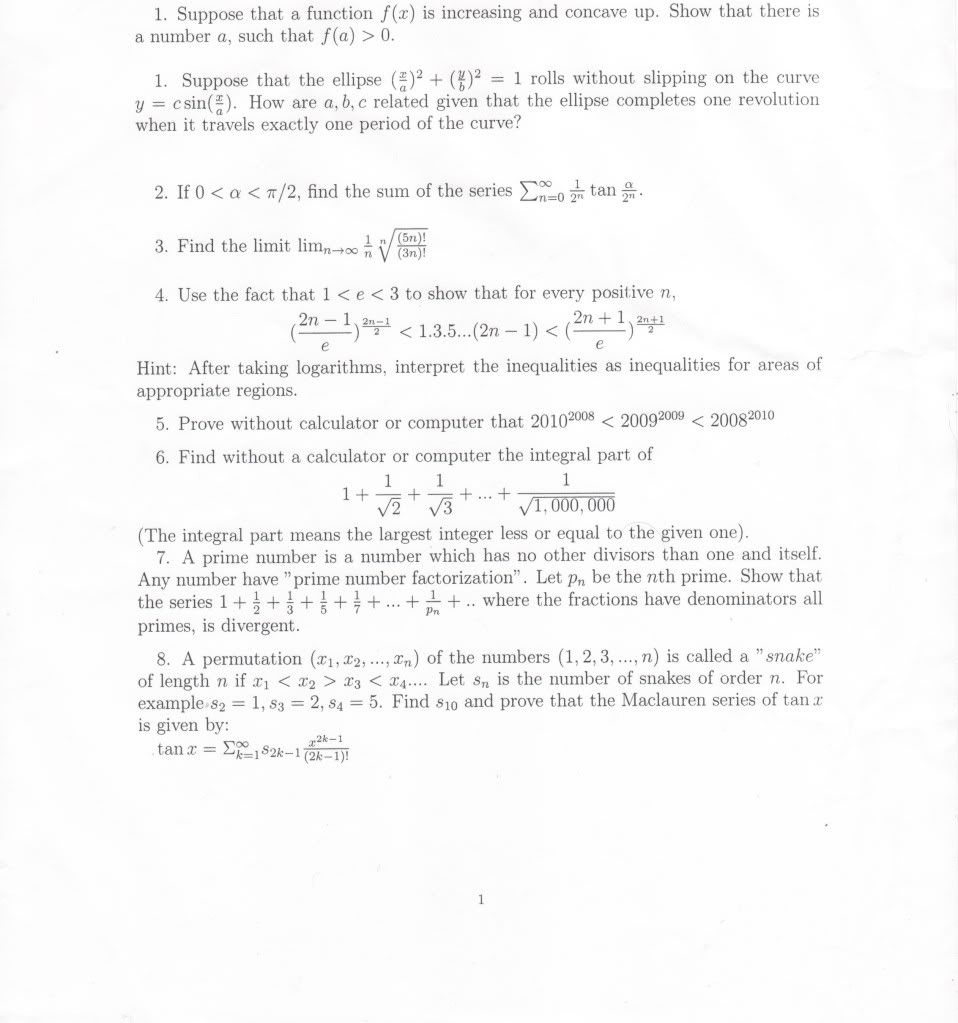Well, here is how I would start it. Many times, the trick is finding the correct identity that will help.
Sometimes rather obscure identities can be implemented when finding the sum of an infinite series involving trig terms.
The nth partial sum is:
\(\displaystyle \frac{tan(a/2)}{2}+\frac{tan(a/4)}{4}+\cdot\cdot\cdot \frac{tan(a/2^{n})}{2^{n}}\)
Using the aforementioned identity, rewrite as:
\(\displaystyle \left(\frac{cot(a/2)}{2}-cot(a)\right)+\left(\frac{cot(a/4)}{4}-\frac{cot(a/2)}{2}\right)+\cdot\cdot\cdot +\left(\frac{cot(a/2^{n})}{2^{n}}-\frac{cot(a/2^{n-1})}{2^{n-1}}\right)\)
This series telescopes and all cancels out except for \(\displaystyle \frac{cot(a/2^{n})}{2^{n}}-cot(a)\)
Now, take the limit of the leftmost expression.
\(\displaystyle \lim_{n\to \infty}\frac{cot(a/2^{n})}{2^{n}}=\frac{1}{a}\)
So, we finally get \(\displaystyle \frac{1}{a}-cot(a)\)
But, one more little tidbit.
The given series starts at n=0, but the above approach started at n=1. So, we throw on a \(\displaystyle tan(a)\)
Thus, the sum of the series is \(\displaystyle \frac{1}{a}-cot(a)+tan(a)\)


